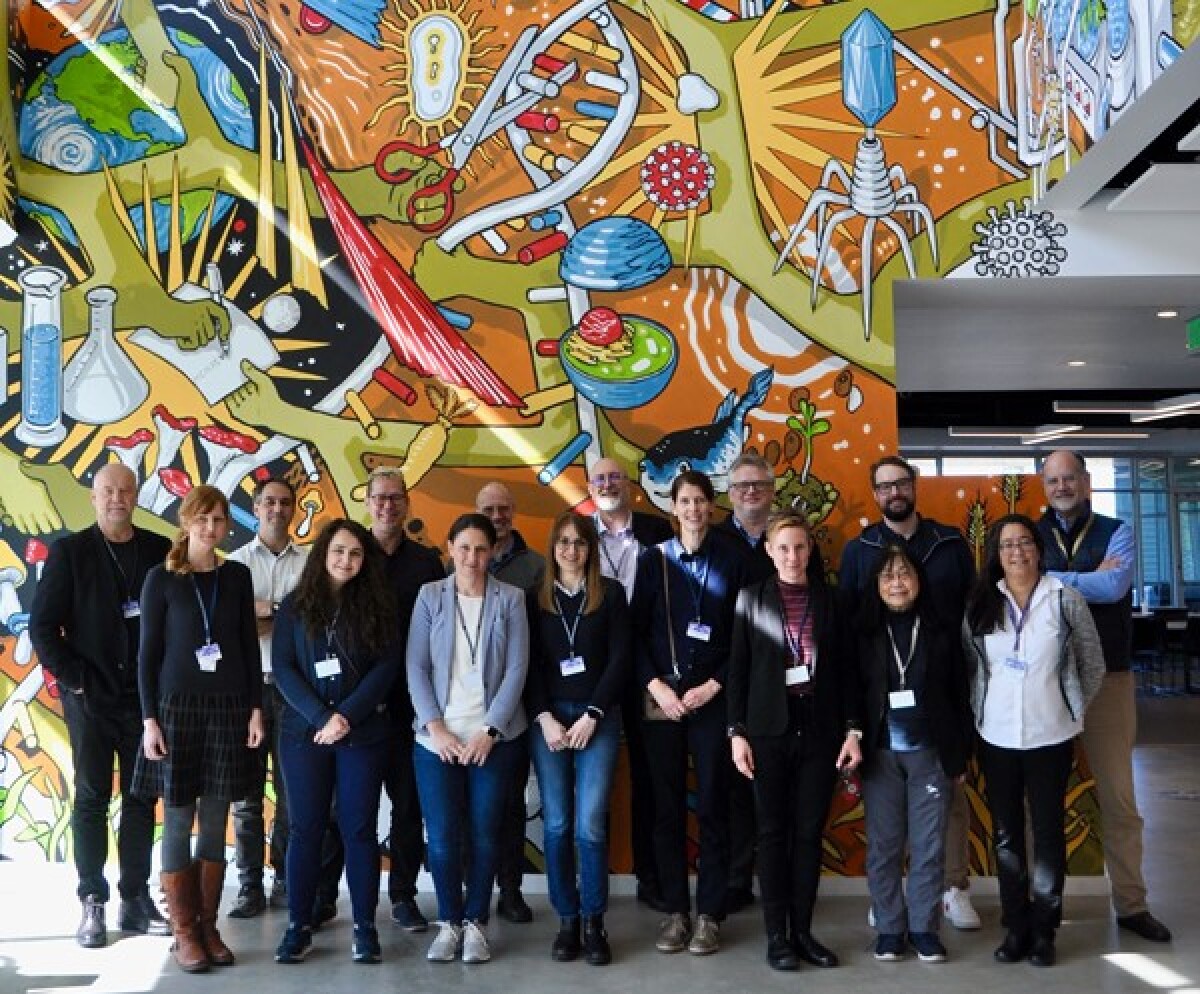News

Two-day kick-off meetingInterdisciplinary delegation from the University of Duisburg-Essen explores collaborative opportunities with Lawrence Berkeley National Laboratory
[Berkeley, 29.02.2024] In a two-day kick-off meeting at Lawrence Berkeley National Laboratory (Berkeley Lab) collaboration in the areas of genomics, structural biology, bioimaging and water research were intensified. The meeting was attended by key representatives from the DOE Joint Genome Institute (JGI), the Molecular Biophysics and Integrated Bioimaging (MBIB) Division and the Energy Storage & Distributed Resources Division of Berkeley Lab. Nine UDE scientists traveled to San Francisco Bay as representatives of ACTIVE SITES (ASC), the Center for Water and Environmental Research (ZWU) and the One Health Ruhr (OHR) research center.
Building on the momentum of a Memorandum of Understanding (MoU) signed between UDE and Berkeley Lab in 2022, the delegation from UDE familiarized themselves with the research programs and user facilities at Berkeley Lab. Commenting on the visit, JGI Director Nigel Mouncey expressed enthusiasm about the potential of this collaboration stating, “We already identified a lot of synergies. To bring together expertise of the involved institutions will give us the opportunity to advance unique scientific knowledge and address global challenges.”
During the workshop UDE and Berkeley Lab scientists discussed a diverse range of topics related to structural biology, single cell and systems biology, omics, and big data science, machine learning for experimental science, energy conversion and water treatment as well as microbial ecology with a focus on metabolism and ecosystem health. To facilitate in-depth discussions on future collaborations, an entire afternoon was dedicated to small individual workshops. Of common interest is the method development to study active sites or single cells in their functional aqueous environment.
During the tours through four national user facilities located at Berkeley Lab, including the JGI, the National Energy Research Scientific Computing Center, the Molecular Foundry and the Advanced Light Source, future collaborative research projects were also intensively discussed. The Berkeley Synchrotron Infrared Structural Biology (BSISB) Program for the characterization of biological processes was of high interest for the visitors, who saw the latest advancements in imaging-related technology and instrument-analytical methods.
“The microfluidic devices we recently developed allow us to produce multi-monodispersed droplets in a two-dimensional plane by moving different fluids together in a controlled manner. These advancements allow controlled sample transport for mass spectrometry applications, for example, or the timely controlled start of a biochemical reaction which can then directly be measured by IR-spectroscopy and mass spectrometry in sequence in real time at an atomic resolution. We are excited to start our collaboration to expand these operando spectroscopic methods in conjunction with microfluidics into a powerful tool to address many of the research questions discussed,” said Hoi-Ying Holman, who is a MBIB senior scientist and the BSISB director.
The JGI’s Tanja Woyke, head of the Microbial Genomics Program, is enthusiastic about new collaborative projects: “We are excited to continue our fruitful collaboration in the microbiome space that has resulted in many impactful papers in recent years, but are also looking forward to jointly expanding into new areas of research. The extensive algae collection at University of Duisburg-Essen is of particular interest, as it aligns well with DOE’s missions and the JGI’s algal focus.”
To bolster the already existing collaborations, Alexander Probst, initiator of the meeting and long-standing, successful JGI user, has now become an affiliate scientist at Berkeley Lab. Moreover, follow-up meetings, agreements on exchange of materials and samples as well as research visits are organized. Selected Berkeley Lab scientists are invited to visit the partners at the University of Duisburg-Essen in Germany in 2024 and 2025.
Participants included Alexander Probst, Stephan Barcikowski, Lydia Didt, Anzhela Galstyan, Shirley Knauer, Beate Krok, Oliver J. Schmitz, and Kathrin Thedieck from UDE, alongside Nigel Mouncey, Hoi-Ying Holman and Tanja Woyke, Lauren Belisario, Greg Hura, Jan Kern, Nikos Kyrpides, Trent Northen, Robert Kostecki, Susan Tsutakawa, Junko Yano, and Petrus Zwart from Berkeley Lab.

